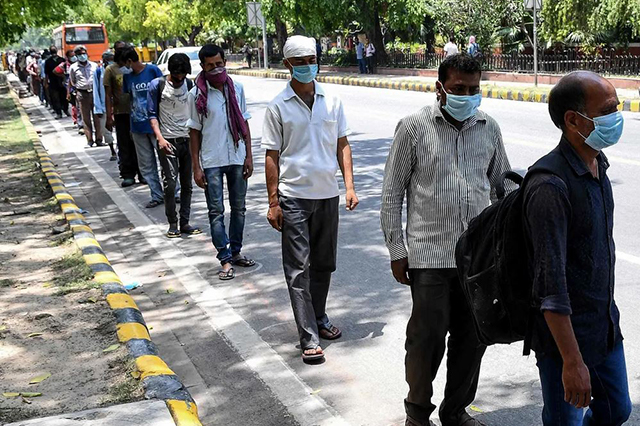Hundreds of thousands of Indian workers who live in cities other than their own have been forced to return to their towns and villages after the Indian Government declared a lockdown which closed many businesses. In the absence of a social safety net, many workers feltthey had no choice but to make their way home. The Government has since acted to provide train and bus transport for some of the workers, but many have suffered. Companies that employed them have said relatively little.
Indian workers, like other workers from South Asia, have also been left stranded in the Gulf region. The Indian Government has arranged flights to bring some of them home, but there are reports of lack of corporate commitment to address these challenges. Some companies in India have acted proactively to help workers through philanthropic actions, but much more is needed.
As part of the United Nations Virtual Forum on Business and Human Rights, IHRB's Salil Tripathi moderates a session asking: What have we learned from the experience of migrant workers? What regulatory reforms should be explored and implemented? What are the responsibilities of employers – individual or business? What can be learned from other good practices? What is the role for big business?
Featuring
- Salil Tripathi of the Institute for Human Rights and Business
- Shubhabrata Roy of Behavioural Insights, Architecture And Strategy (BIAS)
- Vani Saraswathi of Migrant-Rights.org
- Priya Naik of Samhita
- Sudarsana Kundu of Gender@Work
- Chinmay Tumbe of the Indian Institute of Management
- Chandan Kumar of Working Peoples' Charter
Image: Flickr/Gwydion M. Williams





























The perception of ‘value’ needs to change if the World Bank’s mission is to succeed
Last week we attended the Spring Meetings of the World Bank and International Monetary Fund (IMF) in Washington, D.C. The annual IMF-World Bank meetings bring together finance ministers and central bankers from all regions as a platform for official...
26 April 2024 | Commentary
Commentary by Vasuki Shastry, Author, ESG/Strategic Communications Expert; International Advisory Council, IHRB Haley St. Dennis, Head of Just Transitions, IHRB